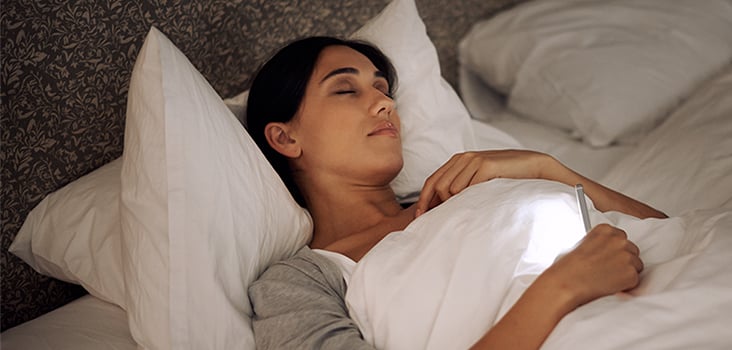
5 Ways to Help Your Employees Get More Sleep
Sleep – we chase after it night after night, but can’t seem to get enough. In fact, a study conducted in 2016 by CDC Morbidity and Mortality Weekly Report, found one in three American adults don’t get enough sleep. For an employer, that means at least one third of your employees are likely sleep deprived and ultimately, less productive.
Sure, you can’t control bad habits outside of the office, but there are ways you can help your employees improve their sleep quality just by making a few small improvements within your workplace.
Let in Natural Light
According to sleep expert Dr. Michael Breus, natural sunlight can boost your energy throughout the day and improve your ability to fall asleep. Natural sunlight helps regulate your body’s sleep cycles. Try positioning desks towards an east-facing window if you can, or just opening the blinds occasionally to help let light in. If you don’t have windows in your office, encourage employees to get up and walk outside for a few minutes every hour. Just soak up some sun whenever you can throughout the day.
Restrict Office Work to Office Hours
You may think that employees who commit time outside of the office to work are the most productive, but overworking leads to underperforming. Being able to shut your mind off before falling asleep is pertinent to a good night’s rest. If there isn’t clear separation between office and home life, it can be difficult for employees to turn their minds off and sleep. Set rules to prevent work from overflowing into home life. Make sure no one is sending emails or requests after hours, and that all higher-ups support it. If your employees feel they don’t have enough time in the day to accomplish their tasks, consider reevaluating their workload. Remember: quality over quantity. And in this case, quality sleep equals quality work.
Make a Game Out of It
There are tons of sleep-monitoring apps available for free through phones, tablets, and smart watches. Choose one that monitors not only the number of hours, but the quality of your employees’ sleep. Have them log their results each morning and compare with coworkers. Set a competition for as long as you find necessary. You can even do it for one week per month if you find the competition helpful. Monitoring their sleep helps make employees aware of how they’re sleeping, so they can make improvements where needed.
Designate Rest Areas
Research by the National Sleep Foundation has shown that allowing employees to take a 20- to 30-minute nap during the day increases productivity. Fortune 500 companies like Google, Capital One, and Uber have already filled their headquarters with “nap pods” to encourage well-rested employees. Of course, if you aren’t a Fortune 500 company, “nap pods” may not be an option. However, you can still designate rest areas or quiet rooms to help employees recharge during the day.
Genuinely Encourage Paid Time Off
Many companies offer paid time off, but employees are rarely encouraged to take any. A survey conducted by Glassdoor showed that 61 percent of employees would rather work when feeling sick, instead of taking a sick day or time off. Encourage time off through verbal repetition, especially around the holidays. At the end of team meetings or conferences, reiterate to employees that you want them to take the time they need to rest and spend time with family. Also, enforce a strict “don’t come to work if sick” policy. Toughing it out doesn’t help anyone.
Employees who don’t get enough sleep can develop depression, lose focus, and become sick more easily. This causes an increase in work-related accidents, injuries, and expensive mistakes for you to deal with. Remember: a well-rested employee makes fewer mistakes and is more productive. And although it shouldn’t be your responsibility to make sure each of your employees is getting 7-9 hours of sleep a night, you can benefit greatly from their improved sleep habits.



